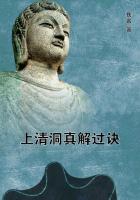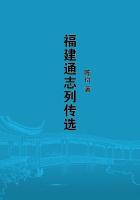Mr. O'Connell defended, in Ireland, within five and twenty years, three brothers who were hanged for a murder of which they were afterwards shown to have been innocent. I cannot find the reference at this moment, but I have seen it stated on good authority, that but for the exertions, I think of the present Lord Chief Baron, six or seven innocent men would certainly have been hanged. Such are the instances of wrong judgment which are known to us. How many more there may be in which the real murderers never disclosed their guilt, or were never discovered, and where the odium of great crimes still rests on guiltless people long since resolved to dust in their untimely graves, no human power can tell.
The effect of public executions on those who witness them, requires no better illustration, and can have none, than the scene which any execution in itself presents, and the general Police-office knowledge of the offences arising out of them. I have stated my belief that the study of rude scenes leads to the disregard of human life, and to murder. Referring, since that expression of opinion, to the very last trial for murder in London, I have made inquiry, and am assured that the youth now under sentence of death in Newgate for the murder of his master in Drury Lane, was a vigilant spectator of the three last public executions in this City. What effects a daily increasing familiarity with the scaffold, and with death upon it, wrought in France in the Great Revolution, everybody knows. In reference to this very question of Capital Punishment, Robespierre himself, before he was "in blood stept in so far", warned the National Assembly that in taking human life, and in displaying before the eyes of the people scenes of cruelty and the bodies of murdered men, the law awakened ferocious prejudices, which gave birth to a long and growing train of their own kind. With how much reason this was said, let his own detestable name bear witness!
If we would know how callous and hardened society, even in a peaceful and settled state, becomes to public executions when they are frequent, let us recollect how few they were who made the last attempt to stay the dreadful Monday-morning spectacles of men and women strung up in a row for crimes as different in their degree as our whole social scheme is different in its component parts, which, within some fifteen years or so, made human shambles of the Old Bailey.
There is no better way of testing the effect of public executions on those who do not actually behold them, but who read of them and know of them, than by inquiring into their efficiency in preventing crime. In this respect they have always, and in all countries, failed. According to all facts and figures, failed. In Russia, in Spain, in France, in Italy, in Belgium, in Sweden, in England, there has been one result. In Bombay, during the Recordership of Sir James Macintosh, there were fewer crimes in seven years without one execution, than in the preceding seven years with forty-seven executions; notwithstanding that in the seven years without capital punishment, the population had greatly increased, and there had been a large accession to the numbers of the ignorant and licentious soldiery, with whom the more violent offences originated. During the four wickedest years of the Bank of England (from 1814 to 1817, inclusive), when the one-pound note capital prosecutions were most numerous and shocking, the number of forged one-pound notes discovered by the Bank steadily increased, from the gross amount in the first year of 10,342 pounds, to the gross amount in the last of 28,412 pounds. But in every branch of this part of the subject--the inefficiency of capital punishment to prevent crime, and its efficiency to produce it--the body of evidence (if there were space to quote or analyse it here) is overpowering and resistless.
I have purposely deferred until now any reference to one objection which is urged against the abolition of capital punishment: I mean that objection which claims to rest on Scriptural authority.















